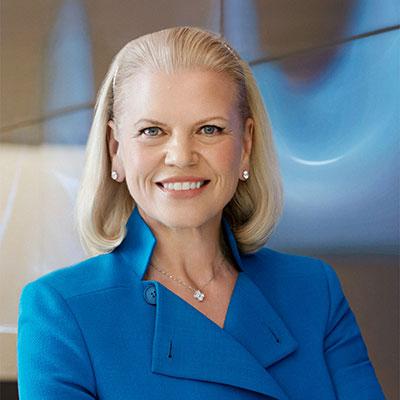2018 Mobility 100: 30 Coolest Mobile Security And Device Management Vendors

Mobile Security Innovators
Businesses understandably have been nervous about the arrival of the mobile era, where employees expect to be able to use their smartphones, tablets and laptops to get work done wherever they may be. The protections of the corporate network are typically nowhere to be found when workers are off-site. But even as cyberthreats have surged, an array of cybersecurity vendors have stepped up to provide powerful security and management capabilities for mobile devices, whether corporate-owned or not.
To give a sense of the key players in mobile security and device management right now, we've rounded up 30 of the coolest vendors to know about.

Appthority
Anne Bonaparte, CEO
Headquarters: San Francisco
The company's mobile threat defense offering for enterprises, Appthority Mobile Threat Protection, secures business data against threats across mobile devices, apps and networks. One recent move by Appthority saw the integration of the company's technology with managed Google Play, as a way to automate the vetting of Android apps prior to distribution to employees.

Arxan Technologies
Joe Sander, CEO
Headquarters: San Francisco
A specialist in mobile application protection, Arxan Technologies recently unveiled a new security monitoring and analysis service for apps. The service, Arxan Threat Analytics, provides visibility around whether apps are under attack and where the attacks are coming from so that countermeasures can be deployed. The company also provides mobile app management through its acquisition of Apperian.

Bitdefender
Florin Talpes, CEO
Headquarters: Romania
Aimed at providing controls for bring-your-own-device within the enterprise, Bitdefender's Security for Mobile offering provides centralized management of security policies for iOS and Android devices. Pre-defined actions for non-compliant devices include denial of access to corporate services, while the offering also provides on-demand malware scanning for Android devices.

BlackBerry
John Chen, CEO
Headquarters: Waterloo, Ontario
While BlackBerry is no longer focused on mobile hardware, the company has continued bringing its prowess in enterprise mobility security to bear with offerings such as mobile application management and mobile device management. In addition, the company provides a customized secure version of Android 7.1 for the BlackBerry KeyOne smartphone (manufactured by brand licensee TCL).

Centrify
Tom Kemp, CEO
Headquarters: Santa Clara, Calif.
Centrify's enterprise mobility offerings feature a focus on combining mobility management and identity management. The offerings employ machine learning to analyze employee behavior and generate risk scores for organizations. Centrify thus enables IT teams to set security policies based on risk level while also allowing for adaptive enforcement of additional security policies.

Check Point Software Technologies
Gil Shwed, CEO
Headquarters: San Carlos, Calif., and Tel Aviv, Israel
Check Point touts its wide range of enterprise mobile security offerings, including SandBlast Mobile (for defending iOS and Android devices against threats such as infected apps and operating system exploits); Check Point Capsule (which offers a secure environment for use of mobile devices containing business data); and mobile endpoint security (combining data security, network security, threat prevention and a remote access VPN).

Citrix Systems
David Henshall, CEO
Headquarters: Fort Lauderdale, Fla.
Citrix's enterprise mobility management offering, XenMobile, brings together unified endpoint management, mobile device management, mobile application management, mobile content management and secure network gateway. XenMobile is offered both as an independent product and as an additive product to Microsoft's Intune enterprise mobility management offering.

ForeScout
Michael DeCesare, CEO
Headquarters: San Jose, Calif.
ForeScout is the maker of CounterACT, which provides agentless visibility of devices as they connect to the network. The offering assesses the security of discovered devices and enables customers to set policies for controlling the behavior allowed for devices on the network--ultimately serving as a key enabler for enforcing bring-your-own-device policies within the organization.

ForgeRock
John Fernandez, Interim CEO
Headquarters: San Francisco
ForgeRock looks to help companies secure identity and access management for the new wave of devices, including mobile devices. ForgeRock's "intelligent authentication" for mobile devices provides easier configuration and adjustment of user logins, using data from devices, user behavior and other factors.

IBM
Ginni Rometty, Chairman, President, CEO
Headquarters: Armonk, N.Y.
IBM provides the MaaS360 enterprise mobility management offering as well as mobile security products in adjacent areas, including threat detection and cloud access security brokers. MaaS360 offers a number of important insight to IT administrators, such as identification of policy violations and related vulnerabilities.
Ivanti
Steve Daly, CEO
Headquarters: South Jordan, Utah
Ivanti is focused on providing integration of unified endpoint management with endpoint protection, service desk and asset management. Ivanti has been a longtime leader in the client management tool (CMT) space, making it ideal for organizations that are seeking strong CMT functionality in their enterprise mobility management offering. Advantages include a free-to-use self-service portal for iOS and Android.
Jamf
Dean Hager, CEO
Headquarters: Minneapolis
Jamf provides enterprise mobility management for Apple devices such as iPhones, iPads and MacBook Pro laptops through its Jamf Pro offering. Capabilities include device provisioning; customized device management; app management (with multiple options for deploying apps to employees); and automatic gathering of data (such as hardware, software and security configuration data) from Apple devices.
Kaspersky Lab
Eugene Kaspersky, CEO
Headquarters: Moscow, Russia
The company's mobile security and management offering, Kaspersky Security for Mobile, provides threat defense and threat management for organizations that have large numbers of highly mobile workers. Features include mobile anti-malware, secure mobile web browsing, call and SMS filtering, rooting jailbreak protection and anti-theft features such as remote locking of missing devices.
Lookout
Jim Dolce, CEO
Headquarters: San Francisco
Lookout specializes in mobile security by coming at the issue from several directions. Lookout Mobile Endpoint Security offers visibility into--and protection against--app-based security threats such as spyware, vulnerabilities in app data transfer, risky app behaviors and apps originating from outside trusted app stores. Meanwhile, Lookout App Defense protects against app data compromise, and Lookout Threat Intelligence provides "the world's largest searchable mobile threat data set," according to the company.
McAfee
Christopher Young, CEO
Headquarters: Santa Clara, Calif.
McAfee's mobile security strategy extends not just to the securing of smartphones and tablets, but to corporate networks as well. The company says that its mobile security offerings protect devices against malware and advanced cyberattacks, including zero-day exploits. The offerings provide for management of mobile devices that contain business data, and McAfee also provides malware defense for mobile operators.

Miradore
Simo Salmensuu, CEO
Headquarters: Finland
The company provides the Miradore Management Suite, an IT systems management offering that includes software asset management, hardware asset management, software deployment, OS deployment, patch management, endpoint backup and remote control. The offering supports device operating systems including iOS, Android and Windows.

MobileIron
Simon Biddiscombe, CEO
Headquarters: Mountain View, Calif.
The largest stand-alone enterprise mobility management vendor, MobileIron focuses on protecting smartphones and tablets (both iOS and Android) as well as Windows 10 PCs (including laptops), in part through providing a central point for managing mobile policies. Security improvements have included more proactive support such as getting patches to on-premises customers.

Okta
Todd McKinnon, CEO
Headquarters: San Francisco
Okta says that deploying its identity and access management offering is a powerful way to enable a mobile workforce and bring-your-own-device strategy. The offering provides organizations with a single source of user identity, enabling customers to secure the use of applications, devices and data. Offerings include Adaptive Multi-Factor Authentication, which provides security for mobile device usage even when users are outside an organization's firewall.
Palo Alto Networks
Mark McLaughlin, CEO
Headquarters: Santa Clara, Calif.
Palo Alto Networks provides its GlobalProtect offering in order to enable secure mobile device usage regardless of where employees are located. The company accomplishes this by extending its network of next-generation firewalls into whatever geography users may be located in, through setting up mechanisms to automatically route traffic to nearby firewalls.

Proofpoint
Gary Steele, CEO
Headquarters: Sunnyvale, Calif.
Proofpoint provides its Mobile Defense offering as a way to identify and block malicious apps, as well as apps with risky behaviors that could result in the exposure of business data or to cyberattacks such as spearphishing. The offering also detects risky Wi-Fi access points and device exploits, and it integrates with leading enterprise mobility management products.

RSA
Rohit Ghai, President
Headquarters: Bedford, Mass.
RSA provides its signature SecurID two-factor authentication offering for enabling on-the-go workforces. SecurID can make it simpler to distribute two-factor authentication to mobile employees and the software tokens can be easily revoked, for instance, when a mobile device goes missing. SecurID supports operating systems including iOS, Android and Windows.

Sophos
Kris Hagerman, CEO
Headquarters: United Kingdom
Sophos Mobile provides unified endpoint management for functions such as configuration and policy control for mobile devices (iOS, Android, Windows 10 and macOS); whitelisting and blacklisting of apps; mobile content management; and security protections against threats such as malware and ransomware. Sophos Mobile integrates with other Sophos security products such as endpoint protection.
SOTI
Carl Rodrigues, CEO
Headquarters: Mississauga, Ontario
SOTI's offering is focused on traditional and nontraditional mobile devices such as purpose-built IoT endpoints. The company offers capabilities for managing devices such as remote control and field support, and SOTI touts its recently released MobiControl 14 as the first EMM offering to manage mixed mobility and IoT deployments.

Symantec
Greg Clark, CEO
Headquarters: Mountain View, Calif.
Symantec's Endpoint Protection Mobile offering provides for response in real time to mobile threats, with protections for corporate data and capabilities to block the installation of malicious apps, detect malicious processes and prevent compromised devices from accessing corporate Wi-Fi. The offering makes use of predictive analytics to enable proactive halting of cyberattacks without impacting productivity, according to Symantec.

Trend Micro
Eva Chen, CEO
Headquarters: Tokyo
Trend Micro has offerings for both of the leading mobile operating systems, Android and iOS, with features tailored to protecting devices against theft, loss, web-based threats and viruses. The iOS offering, for instance, protects devices from identity theft and phishing attacks, while also blocking risky websites.
VIPRE Security
Usman Choudhary, Chief Product Officer
Headquarters: Clearwater, Fla.
The company’s VIPRE for Business anti-virus offering, aims to provide businesses with endpoint protection that is easier to manage than other offerings. VIPRE also provides protection for mobile devices against emerging threats such as ransomware attacks.

VMware AirWatch
Pat Gelsinger, CEO
Headquarters: Palo Alto, Calif.
AirWatch is one of the leading enterprise mobility management vendors with a set of robust capabilities available through a single console, ranging from the device (configuration, management and support) to apps (such as delivery of secure productivity apps to employees). Security measures provided by AirWatch include conditional access based on a variety of factors, revocation of access based on security policies and multi-factor authentication. AirWatch has recently made strides toward becoming a full unified endpoint management offering with advances in managing Windows 10 and macOS devices.

WatchGuard
Prakash Panjwani, CEO
Headquarters: Seattle
WatchGuard makes use of its expertise in the realm of network security to provide mobile security capabilities such as identifying and assessing mobile devices (iOS and Android) that are connected to the network. WatchGuard's Network Discovery solution, meanwhile, enables IT teams to scan corporate networks for unauthorized devices.

Webroot
Mike Potts, CEO
Headquarters: Broomfield, Colo.
Mobile security capabilities available from Webroot's product portfolio include blocking of malicious apps, secure web browsing, protection of lost devices, enforcement of corporate policies, automatic updating of security measures and online management for IT.

Zscaler
Jay Chaudhry, CEO
Headquarters: San Jose, Calif.
Zscaler says it provides the same approach to securing mobile devices that it does for PCs, with automatic scanning of all inbound and outbound traffic for cyberattacks and malicious content. The offering provides blocking of malicious apps and access control to app stores, among other capabilities, and Zscaler promises that its mobile protection offering can be deployed "in minutes."